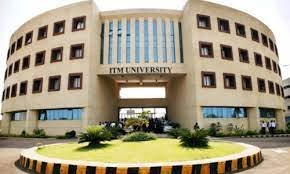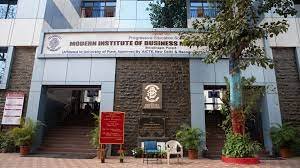Optimize supply chains as a Supply Chain Manager, Operations Director, or Logistics Strategist, ensuring business efficiency and supply chain excellence.
MBA Executive (Operations and Supply Chain Management) Career & Job Opportunities
An MBA specialization in Executive (Operations and Supply Chain Management) is tailored for professionals seeking to excel in roles that involve optimizing processes, managing logistics, and ensuring the efficient flow of goods and services. Graduates of this program possess the skills and knowledge to drive operational excellence in organizations. In this comprehensive guide, we'll explore the promising career opportunities available to those with an MBA in Executive (Operations and Supply Chain Management).
MBA Executive (Operations and Supply Chain Management) Career Opportunities:
-
Operations Manager: Operations managers oversee the day-to-day activities of an organization. They optimize production processes, manage resources, and ensure quality control in manufacturing or service industries.
-
Supply Chain Manager: Supply chain managers coordinate the end-to-end supply chain process, including procurement, inventory management, logistics, and distribution. They ensure products reach customers efficiently and cost-effectively.
-
Logistics Manager: Logistics managers focus on transportation and distribution aspects. They coordinate the movement of goods, manage carrier relationships, and ensure timely deliveries, which is especially crucial in the e-commerce sector.
-
Procurement Director: Procurement directors lead procurement teams in sourcing and purchasing materials, goods, and services for organizations. They negotiate with suppliers, manage contracts, and ensure cost-effective procurement.
-
Demand Planning Manager: Demand planning managers use data analysis and forecasting techniques to predict future product demand. They play a vital role in inventory management and ensuring products are available when customers need them.
-
Supply Chain Analyst: Supply chain analysts leverage data and analytics to identify opportunities for improvement within the supply chain. They provide insights to optimize processes, reduce costs, and enhance efficiency.
-
Warehouse Manager: Warehouse managers oversee the storage and distribution of products within warehouses or distribution centers. They manage inventory, coordinate logistics, and ensure safety compliance.
-
Quality Assurance Manager: Quality assurance managers ensure that products or services meet established quality standards. They develop and implement quality control processes to maintain product integrity.
-
Operations Consultant: Operations consultants work for consulting firms or as independent experts, advising businesses on how to optimize their operations. They often work on projects to improve efficiency and reduce costs.
-
Chief Operations Officer (COO): For ambitious professionals, an MBA in Executive (Operations and Supply Chain Management) can be a stepping stone to becoming a COO. COOs oversee the entire operational aspect of a company, making high-level strategic decisions.
-
Global Supply Chain Manager: In a globalized world, managing supply chains that span multiple countries is complex but essential. Global supply chain managers ensure the smooth flow of goods across borders, dealing with customs, regulations, and international logistics.
-
Sustainability Manager: With a growing focus on sustainability, some organizations hire sustainability managers to develop and implement eco-friendly practices within their supply chains. This role combines environmental responsibility with supply chain optimization.
 1 Years
1 Years
 Post Graduate
Post Graduate
 Management
Management
 Full Time
Full Time





















 back
back

